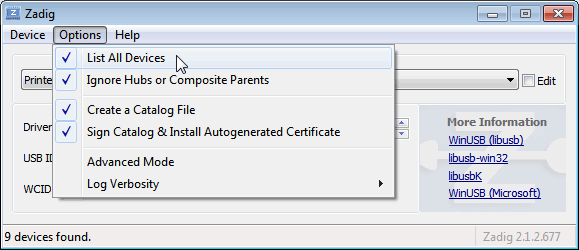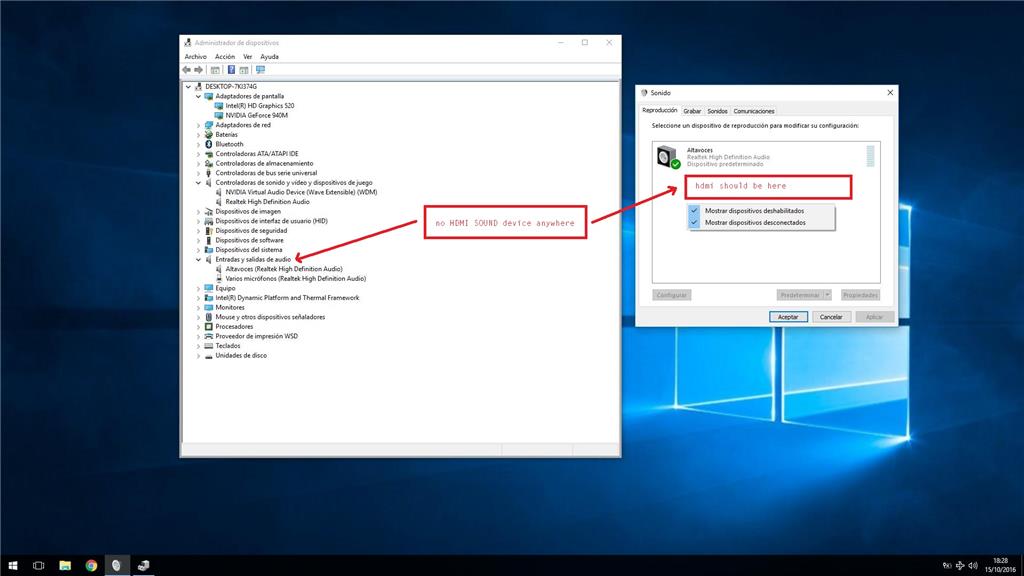- Device::USB
- Libusb.org Usb Devices Driver Adapter
- Libusb.org Usb Devices Drivers
- Libusb.org Usb Devices Driver Download
Device::USB - Use libusb to access USB devices. (DEPRECATED)
Version 0.38
Device::USB has now been superceded by USB::LibUSB, which supports the v1.0 libusb API.
Device::USB provides a Perl wrapper around the libusb library. This supports Perl code controlling and accessing USB devices.
Get a USB device for which you will be writing the client driver. In most cases, you are provided with a USB device and its hardware specification. The specification describes device capabilities and the supported vendor commands. Use the specification to determine the functionality of the USB driver and the related design decisions. Device::USB - Use libusb to access USB devices. (DEPRECATED) VERSION. Device::USB has now been superceded by USB::LibUSB, which supports the v1.0 libusb API. Device::USB provides a Perl wrapper around the libusb library. This supports Perl code controlling and accessing USB devices. Instructions with pictures: Opening Device Manager: Step 3. Locate the 'USB-EPP/I2C.CH341A' device under 'libUSB-win32 devices' Step 4. Right Click on the 'USB-EPP/I2C.CH341A' device and select Unistall' from the drop down menu. After the device is removed you can turn the power off and them back on on the laser cutter.
See the libusb manual for more information about most of the methods. The functionality is generally the same as the libusb function whose name is the method name prepended with 'usb_'.
This module is deprecated as of version 0.38. I have not had the time or need to update the module, and no one has been willing to take it over.
This module provides a Perl interface to the C library libusb. This library supports a relatively full set of functionality to access a USB device. In addition to the libusb functionality Device::USB provides a few convenience features that are intended to produce a more Perl-ish interface.
These features include:
Using the library initializes it, no need to call the underlying usb_init function.
Object interface reduces namespace pollution and provides a better interface to the library.
The find_device method finds the device associated with a vendor id and product id and creates an appropriate Device::USB::Device object to manipulate the USB device.
Object interfaces to the bus and device data structures allowing read access to information about each.
This class provides an interface to the non-bus and non-device specific functions of the libusb library. In particular, it provides interfaces to find busses and devices. It also provides convenience methods that simplify some of the tasks above.
CONSTANTS
This class provides a set of constants for the defined device classes. The constants defined at this time are:
CLASS_PER_INSTANCE
CLASS_AUDIO
CLASS_COMM
CLASS_HID
CLASS_PRINTER
CLASS_MASS_STORAGE
CLASS_HUB
CLASS_DATA
CLASS_VENDOR_SPEC
FUNCTIONS
Create a new Device::USB object for accessing the library.
This class method enables low-level debugging messages from the library interface code.
0 disables debugging, 1 enables some debug messages, and 2 enables verbose debug messages
Any other values are forced to the nearest endpoint.

Returns the number of changes since previous call to the function: the number of busses added or removed.
Returns the number of changes since previous call to the function: the number of devices added or removed. Should be called after find_busses.
Find a particular USB device based on the vendor and product ids. If more than one device has the same product id from the same vendor, the first one found is returned.
the vendor id
product id for that vendor
returns a device reference or undef if none was found.
Find a particular USB device based on the supplied predicate coderef. If more than one device would satisfy the predicate, the first one found is returned.
the predicate used to select a device
returns a device reference or undef if none was found.
Find all devices matching a vendor id and optional product id. If called with no parameters, returns a list of all devices. If no product id is given, returns all devices found with the supplied vendor id. If a product id is given, returns all devices matching both the vendor id and product id.
the optional vendor id
optional product id for that vendor
returns a list of devices matching the supplied criteria or a reference to that array in scalar context
This method provides a more flexible interface for finding devices. It takes a single coderef parameter that is used to test each discovered device. If the coderef returns a true value, the device is returned in the list of matching devices, otherwise it is not.
coderef to test devices.
For example,
Returns all USB hubs found. The device to test is available to the coderef in the $_ variable for simplicity.
Return the complete list of information after finding busses and devices.
By using this function, you do not need to do the find_* calls yourself.
returns a reference to an array of busses.
Return the complete list of information after finding busses and devices.
Before calling this function, remember to call find_busses and find_devices.
returns a reference to an array of busses.
The raw api of the libusb library is also :
Libusb.org Usb Devices Driver Adapter
Return the complete list of information after finding busses and devices.
Before calling this function, remember to call find_busses and find_devices.
returns a reference to an array of busses.
Return the complete list of information after finding busses and devices.
By using this function, you do not need to do the find_* calls yourself.
returns a reference to an array of busses.
Find a particular device

returns a pointer to the device if it is found, NULL otherwise.
Set debugging level: 0: off, 1: some messages, 2: verbose Values outside range are forced into range.
This is an explanation of the diagnostic and error messages this module can generate.
This module depends on the Carp, Inline and Inline::C modules, as well as the strict and warnings pragmas. Obviously, libusb must be available since that is the entire reason for the module's existence.
G. Wade Johnson (gwadej at cpan dot org) Paul Archer (paul at paularcher dot org)
Houston Perl Mongers Group
Original author: David Davis
Please report any bugs or feature requests to bug-device-usb@rt.cpan.org, or through the web interface at http://rt.cpan.org/NoAuth/ReportBug.html?Device::USB. I will be notified, and then you'll automatically be notified of progress on your bug as I make changes.
The project is hosted at github https://github.com/gwadej/perl-device-usb/. More information on the project, including installation help is avaliable on the Wiki.
So far, this module has only been tested on Linux. It should work on any OS that supports the libusb library. Several people have reported problems compiling the module on Windows. In theory, it should be possible to make the library work with LibUsb-Win32 http://libusb-win32.sourceforge.net/. Without access to a Windows development system, I can't make those changes.
The Interfaces and Endpoints are not yet proper objects. The code to extract this information is not yet written.
Thanks go to various members of the Houston Perl Mongers group for input on the module. But thanks mostly go to Paul Archer who proposed the project and helped with the development.
Libusb.org Usb Devices Drivers
Thanks to Josep Monés Teixidor for fixing the bInterfaceClass bug.
Thanks to Mike McCauley for support of usb_get_driver_np and usb_detach_kernel_driver_np.
Thanks to Vadim Mikhailov for fixing a compile problem with VC6 on Windows and then chipping in again for VS 2005 on Windows, and yet again to fix warnings on C99-compliant compilers.
Thanks to John R. Hogheruis for information about modifying the Inline parameters for compiling with Strawberry Perl on Windows.
Thanks to Tony Shadwick for helping me resolve a problem with bulk_read and interrupt_read.
Copyright 2006-2013 Houston Perl Mongers
This program is free software; you can redistribute it and/or modify it under the same terms as Perl itself.
To install Device::USB, copy and paste the appropriate command in to your terminal.
Libusb.org Usb Devices Driver Download
For more information on module installation, please visit the detailed CPAN module installation guide.

Comments are closed.